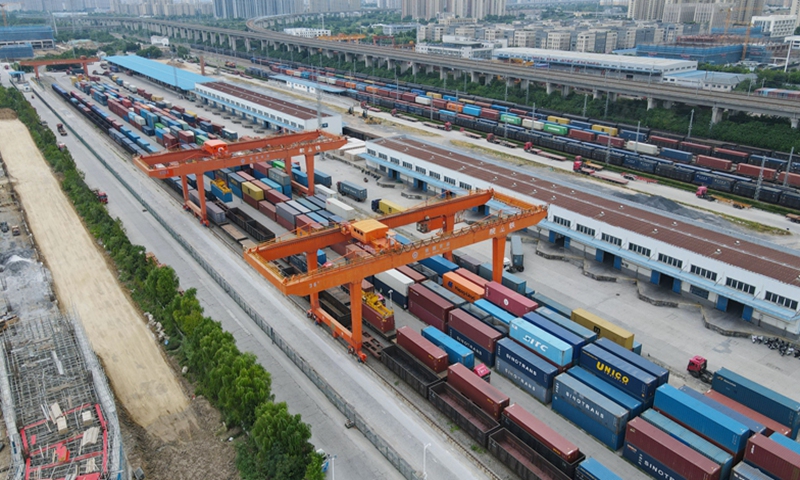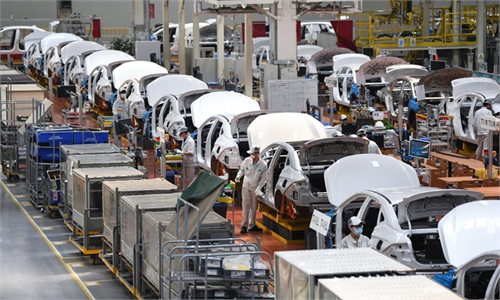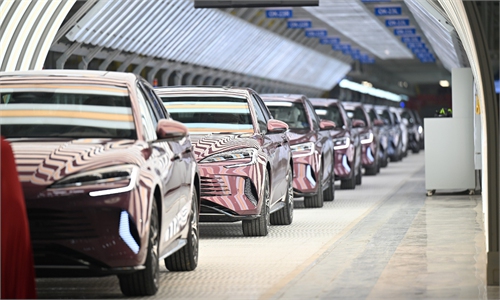China-EU bilateral trade reverses decline to rise by 0.4% between Jan and Jul
Experts see vast cooperation potential in fields of digital, green sectors

This aerial drone photo taken on Aug. 1, 2024 shows a view of the logistics base of Hefei north railway station in Hefei, east China's Anhui Province. A total of 380 China-Europe freight trains departing from Hefei between January and July this year, marking a 3 percent increase from the previous year. Photo: Xinhua
The EU remained China's second-largest trade partner in the first seven months of the year, with bilateral trade reversing a downward trend to grow by 0.4 percent year-on-year, underscoring the resilience and complementarity of the two economies, data from Chinese customs showed on Wednesday.
Total bilateral trade reached 3.22 trillion yuan ($448.39 billion) in yuan-denominated terms between January and July, up 0.4 percent on a yearly basis, according to the General Administration of Customs. In the first half, bilateral trade declined by 0.7 percent year-on-year.
"China and the EU still posted slight growth in bilateral trade despite a sluggish international trade environment. It indicates that there are many complementarities in China-EU trade," Sun Yanhong, a senior research fellow at the Institute of European Studies of the Chinese Academy of Social Sciences, told the Global Times on Wednesday.
With its economy negatively affected by several factors including the COVID pandemic and the Russia-Ukraine conflict, the EU increasingly resorts to protectionism and political interference to protect its economy, but China-EU economic and trade exchanges remain normal, Sun said.
There is vast room for cooperation in fields including the digital and green economies, and areas where the EU and China are strongly complementary, Sun noted.
The EU has adopted protectionist measures in recent months targeting Chinese companies.
Recently, the bloc introduced provisional additional tariffs of up to 37.6 percent on Chinese electric vehicles (EVs).
Despite growing trade frictions, both sides need to ensure cooperation through talks, Sun said, noting that there is room for consultations on the EU's anti-subsidy probe into Chinese EVs.
Zhang Jian, vice president of the China Institutes of Contemporary International Relations, told the Global Times on Wednesday that cooperation between China and the EU will help enhance their global competitiveness, and the two sides can make greater contributions to their own economies and the world as a whole by using their respective advantages in the green and digital economies.
In May, total departure volume of China-Europe and China-Central Asia freight trains reached 2,733, a new monthly high, with cargo transport volume also seeing year-on-year increase, according to official data, as they had established a secure and efficient lifeline for global industrial and supply chains, while China's visa-free policy for multiple European countries further facilitates personnel and trade exchanges.
"It is in the interests of both China and the EU to properly handle differences through dialogue and consultation on the basis of mutual respect," Chinese Foreign Ministry spokesperson Lin Jian said at a press conference on July 29, stressing that China-EU trade and economic cooperation is mutually beneficial in nature.



